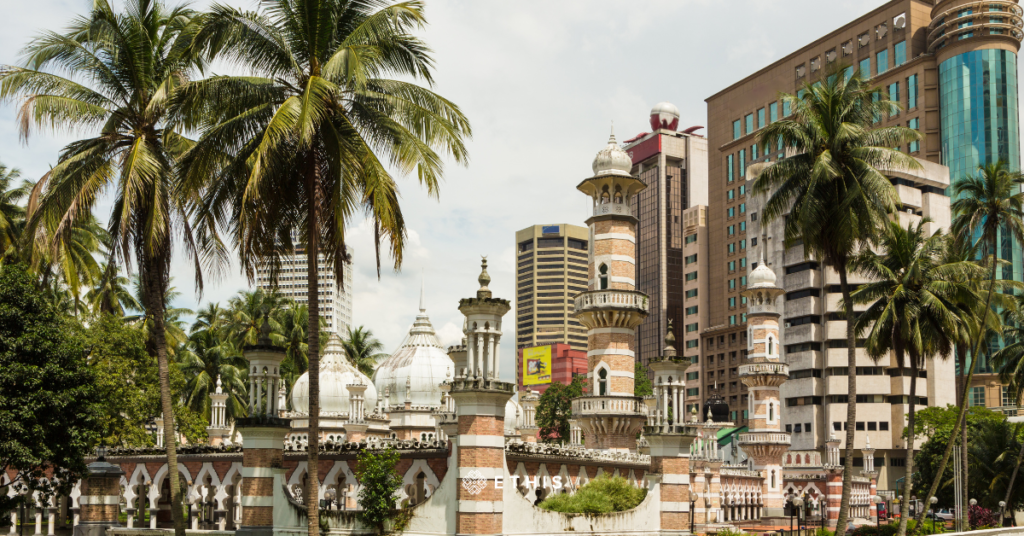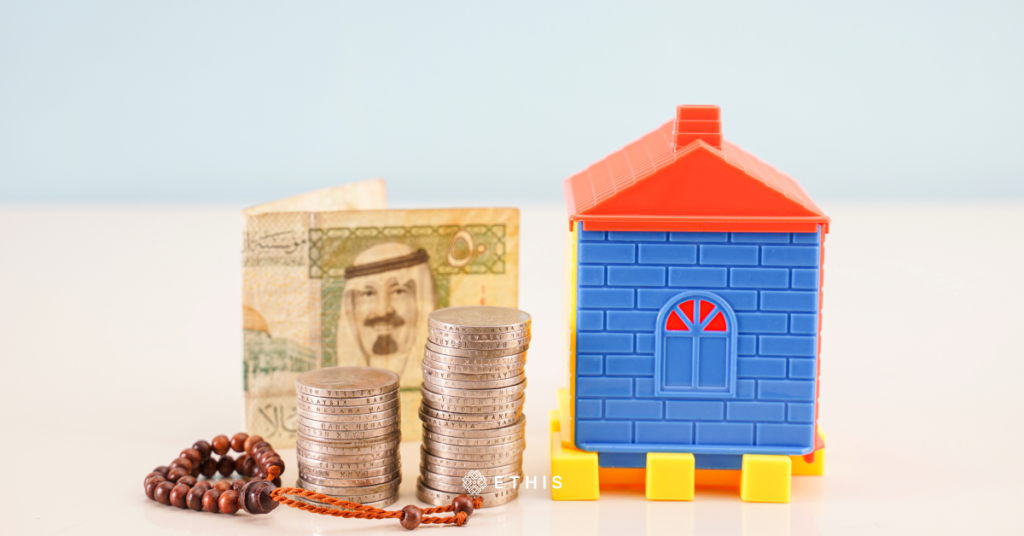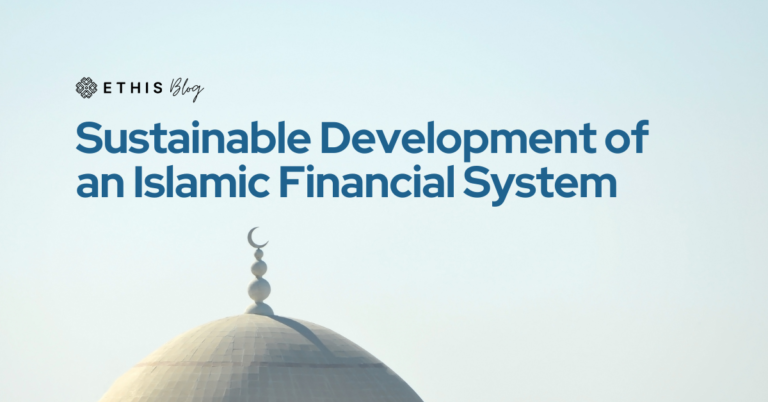
By Dr. Khurshed Mirakilov, Dr.Ashurov Sharofiddin, and Shah Azman Muhd Noor – According to international institutions such as the United Nations and World Bank, transformation to a sustainable development-oriented economy is one of the most significant challenges of the 21st century. What would it look particularly look like for an Islamic financial system?
The greatest challenge of this century is to ensure sustainable, just, and balanced development between the needs of the current and future generations.
This challenge is where Islamic finance comes in with its unique proposition of profit and loss sharing, which contributes to a dynamic economy in which the community at large shares the benefits of growth.
Regarding social sustainability, Islamic finance’s role is in line with the World Bank’s definition of corporate social responsibility. The bank stresses the commitment of owners of commercial activities to contribute to sustainable development by working with their employees and their families, the local community, and society to upgrade people’s living standards in a way that serves commerce and social development at the same time.
Related: How Worldview and Ethics Shape Islamic Economics and Finance
Islamic financial system: a fast-growing sector


The Islamic financial system is one of the fastest-growing sectors, mostly among Muslim majority countries, but to some extent also in Muslim-minority countries.
The fairly intensive development of Islamic finance is due to the growing population demand and these countries’ significant accumulation of financial resources. Thus it is argued that the growth trend of Islamic Financial Institutions (IFIs) will continue.
Islamic finance is one of the fastest-growing sectors when considered on a global scale against the background of the ruin of traditional banks. The profit of IFIs is steadily increasing by 15-20% per year, and assets—by more than 20%.
There has also been an increase in the resilience IFIs based on sound financial and compliance with most international regulatory requirements, especially compared to traditional counterparts, and assessment criteria used by international standard-setting bodies.
Islamic Finance growing globally
As a result of the global financial crisis caused by the collapse of the structured finance market and the impact of the COVID-19 pandemic, the investment community has significantly increased attention to Islamic financing and digitalisation.
Islamic finance is actively being developed even in such Non-Muslim countries as Great Britain, France, and Switzerland. In addition to European countries, funds for socially responsible investments are set in the USA, Canada, Australia, New Zealand, and Japan. These funds are also successfully operating in emerging markets—in China, Brazil, and South Africa.
Islamic financing structures should be considered as such, not by the nature of the origin of their capital but by the principles of operating and investment activities based on the religious traditions of Islam and the provisions of Islamic law.
Such customs and norms are subordinated to the fundamental theses of mutual assistance, equal share in profits and losses, fair remuneration for each participant, etc.
Related: 6 Crucial Components of the Islamic Financial System
An Islamic financial system facilitates sustainability


In theory, due to its holistic features, Islamic financial philosophy has made it sustainably sound in comparison to the traditional banking system as summarized by the Asian Development Bank (ADB) based on the following features:



- The IFI and its customer relationship are not between a debtor and a creditor; instead, it means sharing risks and rewards.
- Unlike conventional financial institutions, IFIs do not offer cash loans. They grant facilities based on either Islamic contracts with uncertain returns, such as participation (Musharakah), Mudarabah, Muzaraah, and Musaghat, or contracts with certain returns, such as Murabahah, sale on installments, and Ijarah.
- Deals in the real economy form the lion’s share of Islamic banking activities, with the bank purchasing the merchandise for customers and selling it to them against cash or gradual payments with an agreed profit.
- Islamic finance is based on shares. To mobilise funds, IFIs receive term deposits with uncertain return rates and then, on behalf of depositors, consolidate these funds with their resources to offer facilities to applicants based on contracts with either certain or uncertain profits. Eventually, they share the realised gains following the agreement between them and depositors.
- IFIs are supposed to contribute to the development of the whole society. Although making a profit is essential, it is not the main objective of finance. An IFI stresses the realisation of socioeconomic goals without violating Shariah law.
IFIs whose activities are aimed at real business and assets have a beneficial effect on the national economy. The extensive financial instruments used in Islamic finance can be safely used in developing priority economic development programs, namely in the energy conservation program and the development of small and medium-sized businesses.
Related: New Developments Bode Well for Islamic Finance
Sustainable development of an Islamic financial system
Financial stability is generally defined as a state in which all economic infrastructure and mechanisms of the financial system—including financial markets, institutions, and other infrastructures—function without systemic disorders.
It’s also in which every component of the financial system provides the highest possible level of flexible response to potential shocks. Financial stability ensures the continuous activity of the financial system and a method of financial intermediation that supports sustainable economic growth.
Islamic finance shows immense potential to be developed sustainably with a higher overarching objective that emphasises maximizing positive value creation and preventing adverse impacts on stakeholders and the environment.
Islamic financial system and Maqasid Shariah


However, this must be in line with the Maqasid Shariah (Objectives of Shariah), which was first articulated by al-Ghazali in the 12th century and which outlines the goals of preservation of religion, life, family, mind, and property with the ultimate aim of prevention of harm and attainment of benefits.
Many scholars have developed this further, describing the Maqasid Shariah as the accomplishment of good, welfare, advantage, benefits, and warding off evil, injury, and loss. Some modern scholars have also weighed in on righteousness and justice within Maqasid. Contemporary scholarship in Islamic law also recognises human development as a prime expression of maslahah (public interest) in all economic activities.
Once Islamic Finance’s activities attain the five Shari’ah Objectives, it will ultimately lead to economic, environmental, and Social sustainability. Hence, one could argue that the Maqasid Shariah, which underpins the foundation of Islamic Finance and the Islamic Economy, has a more holistic perspective on pursuing public interests in that it aims to leave no one behind in pursuit of prosperity while building a cohesive and stable society.
Thus, we can conclude that Islamic finance is highly sustainable in contrast to the conventional system, as it is the closest to the real economy. The list of Islamic banking products and services are equity-based rather than loan-based and more likely linked with the environment, social, and actual production.
Related: Islamic Fintech: Bubble or Boom?
What needs to be done
Islamic finance can be developed sustainably in three areas, namely, economic sustainability, environmental sustainability, and social sustainability.
Economic sustainability requires all parts of wealth creation to be more inclusive such as micro and macroeconomics, public finance, private finance, and social finance, to function in balance. Economic sustainability can be achieved through multiple functions: Shari’ah screening process to prove the purification of income, allocation of profit and loss based on sharing principle, enhancing Islamic social finance tools such as Zakat payment system, Qard Hasan, charity-Sadaqah-Waqf, and the disclosure of non-halal earnings.
The environmental sustainability of Islamic banking and finance has a high potential to contribute toward a sustainable financing ecosystem for the green world and environment. Islam primarily promotes the preservation of natural resources and the need to respect all living things regarding the relationship between humankind and the environment.
Environment sustainability can be maintained to formulate comprehensive policies for green lending and investment after demanding an adequate analysis of environmental risks incorporating national ecological rules and acts such as Green products and services and investments in friendly environment projects,
Lastly, social sustainability can be achieved through human resources development, scholarships, and Research and Development for further improvement and sustainable growth.





Top Posts
Islamic P2P Crowdfunding Explained
How to Earn Halal Money? The Money Mindset
Halal Investments for Singapore Muslims? It’s time for a shake-up in the Islamic Investments scene.
Smart investment for making Halal money
3 Reasons Why Property Crowdfunding is the Smart Investment for You